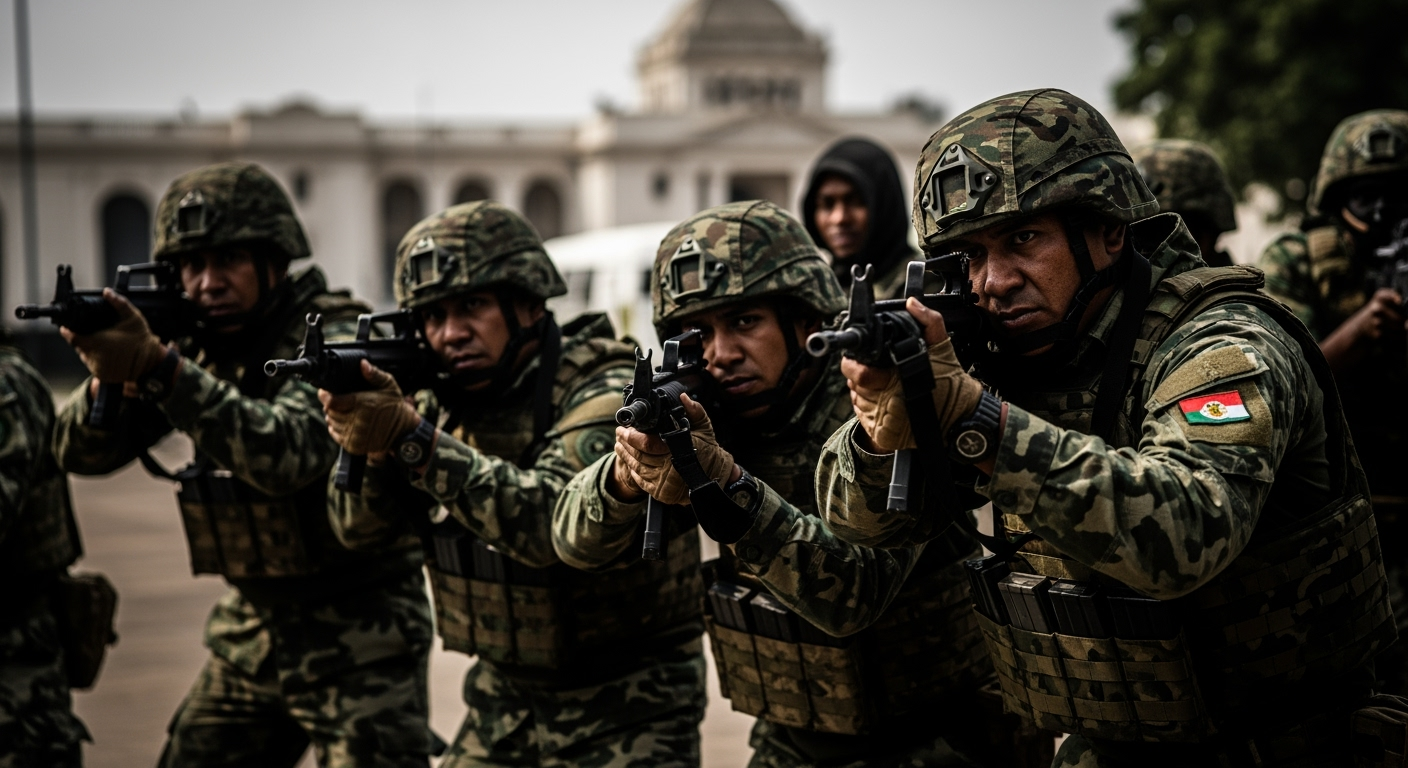Related Articles

Poland's Enduring Economic Ascent: A Central European Success Story




The Western Balkans, a region historically plagued by conflict, faces renewed uncertainty as emerging military alliances and persistent geopolitical tensions threaten to destabilize the fragile peace. While the specter of a return to the large-scale wars of the 1990s has been averted, underlying issues remain unresolved, creating an environment ripe for exploitation by both internal and external actors.
A recent flurry of diplomatic activity has seen the formation of new security partnerships, raising concerns about a potential arms race and the creation of antagonistic blocs within the region. In March 2025, Albania, Croatia, and Kosovo signed a joint declaration on defense cooperation in Tirana. This declaration focuses on strengthening the defense and security industry, increasing military interoperability through joint training and exercises, countering hybrid threats, and supporting Euro-Atlantic integration. Kosovo's Minister of Defence, Ejup Maqedonci, stated that the alliance "is not to threaten anyone but to send a message to all those who dare to jeopardize security, peace, and stability in the Western Balkans."
Serbia, viewing this alliance as a direct threat, responded by deepening its defense cooperation with Hungary. This includes dozens of joint programs in 2025, featuring military exercises and shooting drills. The Hungarian contingent is part of the peacekeeping missions in Bosnia and Herzegovina and Kosovo, creating additional tension.
These developments have heightened anxieties, with some analysts suggesting that these alliances could lead to a fragmentation of the security landscape and create opportunities for external actors to expand their influence.
The formation of these alliances occurs against a backdrop of persistent ethnic tensions and weak governance, particularly in Bosnia and Herzegovina and between Serbia and Kosovo. The Dayton Peace Agreement, which ended the Bosnian War in 1995, created a united state from two self-governing entities: the Federation of Bosnia and Herzegovina and Republika Srpska. However, the threat of secession from Republika Srpska still lingers, fueled by Bosnian Serb leader Milorad Dodik.
The unresolved sovereignty dispute between Kosovo and Serbia remains a significant source of instability. A shoot-out between Serb militants and Kosovo police in September 2023 highlighted the continued threat of low-intensity violence. The lack of normalization between Serbia and Kosovo, coupled with ethnic tensions and organized crime, continues to impede physical and territorial security in the region.
These internal challenges are compounded by weak governance, state capture, corruption, and slow economic development, making the region susceptible to disinformation campaigns and malign foreign influence.
External actors, particularly Russia and China, play a significant role in the Western Balkans, further complicating the security landscape. Russia has cultivated close ties with Serbia, Republika Srpska, and certain political factions in Montenegro and North Macedonia, seeking to undermine NATO and EU enlargement. Serbia has received arms deliveries from Russia, despite international sanctions on Moscow. This military cooperation has grown stronger in recent years, with Serbia acquiring MiG-29 fighters, T-72 main battle tanks, and BRDM-2 armored vehicles from Russia.
China's economic influence in the region is also growing, particularly in Serbia. Trade relations between Serbia and China have been liberalized through a Free Trade Agreement signed in October 2023, giving China a privilege not shared by the EU, the US, or Russia. Chinese investments in Serbia have accelerated since 2016, with a total of 5.3 billion euros invested between 2016 and 2023.
NATO recognizes the Western Balkans as a region affected by hybrid operations conducted by the Russian Federation and multifaceted initiatives by the People's Republic of China, both of which pose challenges to NATO security.
The European Union and NATO are actively engaged in the Western Balkans, seeking to promote stability and integration. The EU has revitalized its enlargement agenda, offering a path towards membership for countries in the region. However, progress has been slow, and some countries have struggled to meet the requirements for accession.
NATO maintains a military presence in Kosovo through KFOR, which has around 3,500 personnel. NATO's presence is considered essential for the security and stability of Kosovo and the region as a whole. The alliance also supports capability development in the Western Balkans, coordinating with countries in the region to address common challenges.
The EU also plays a key role in tackling security challenges in the Western Balkans, but sustained cooperation between the EU and US is crucial.
The Western Balkans remains a region of chronic political and security challenges. While the worst-case scenario of a return to large-scale wars has been averted, the underlying issues persist, and new threats are emerging. The formation of military alliances, coupled with ethnic tensions, weak governance, and the influence of external actors, creates a volatile environment.
The EU and NATO's continued engagement is essential to promoting stability and integration in the region. However, a more comprehensive approach is needed to address the root causes of instability, including strengthening democratic institutions, promoting economic development, and fostering reconciliation between ethnic groups. Failure to do so risks a renewed escalation of conflict and a further erosion of peace in the Western Balkans.